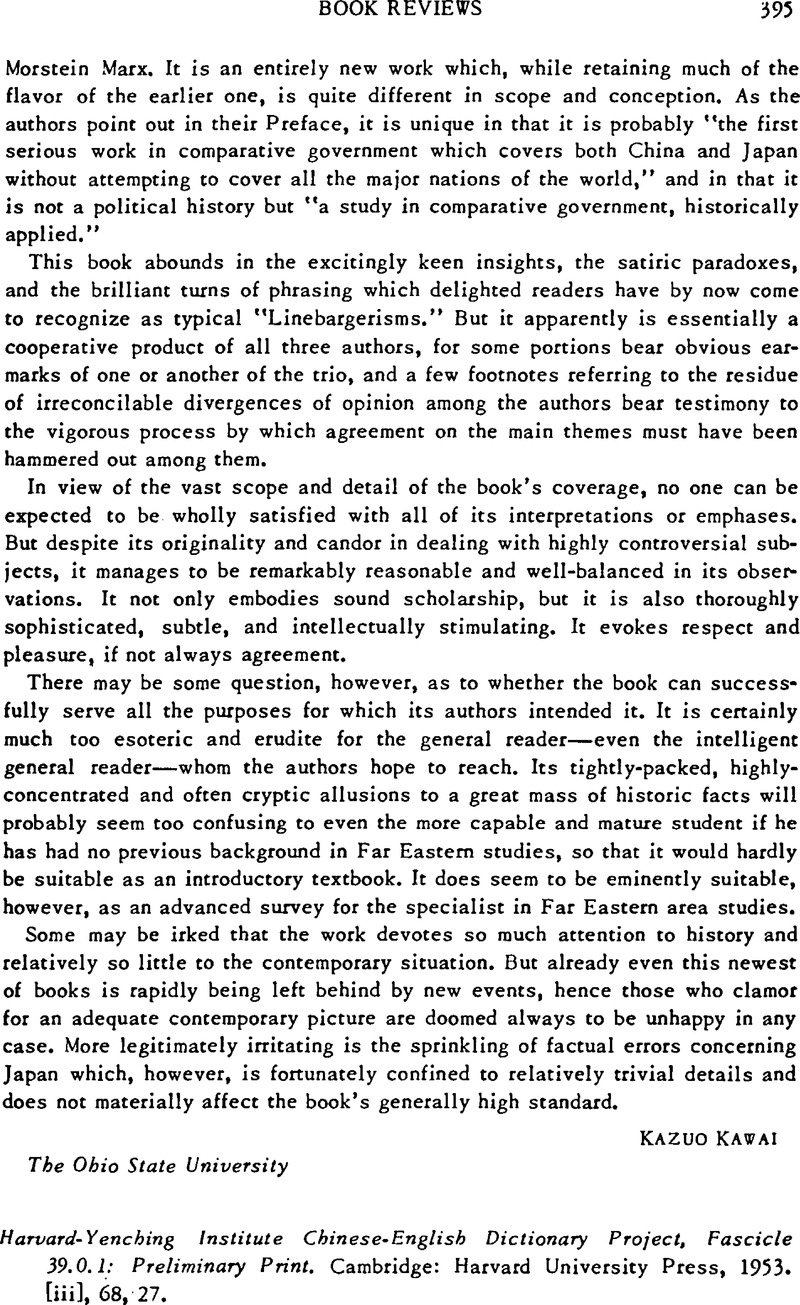No CrossRef data available.
Published online by Cambridge University Press: 23 March 2011

1 In Analects 6.4 Confucius says of Chung-kung that he should be employed by the state on his own merits despite his obscure origin, oi his father's alleged defects, just as a sacrificial victim should be selected (or its own uniform color and horns, even though it might have sprung from a brindled parent.) Since the allusion is to the able son of a useless father, the metaphor should obviously be rendered “offspring of an ox,” as in Waley, , The Analects of Confucius (London, 1938) 116Google Scholar, not “calf of a cow,” because the victim selected was cot to be young, and the parent alluded to was by logic male. Legge, in fact, tried to correct in his note the wrong impression given by his translation; see Legge, The Chinese Classics, 1.186.